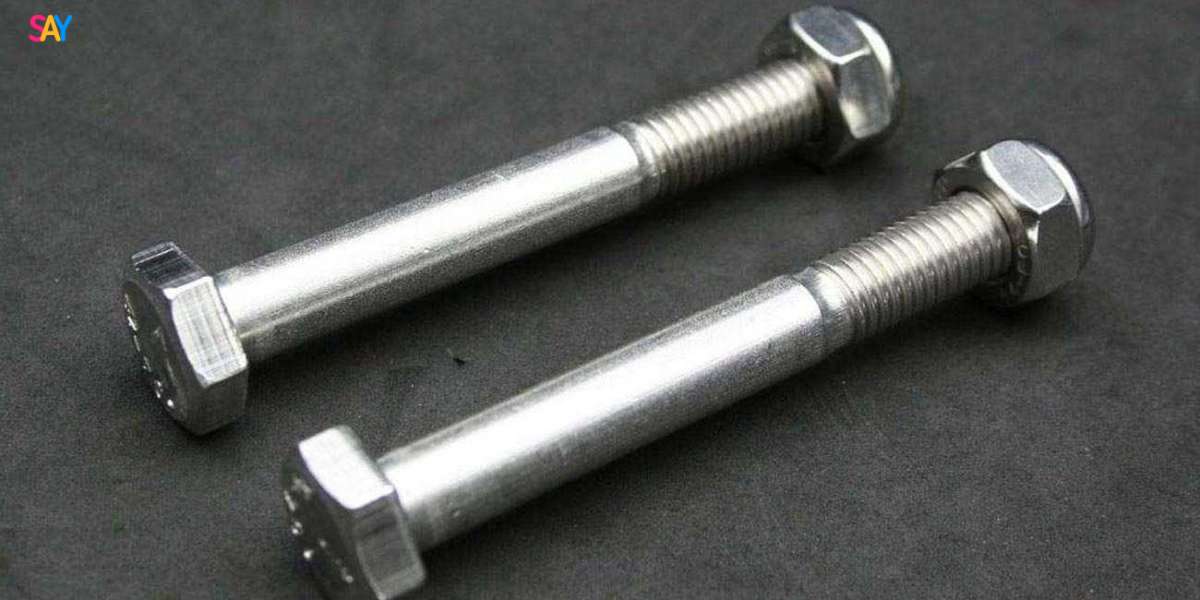When it comes to heavy-duty industries like marine, chemical, and oil gas, choosing the right materials for equipment is crucial. Duplex steel bolts have gained a strong reputation for their exceptional strength, durability, and corrosion resistance. Let’s explore the top five uses of these robust fasteners and why they are a preferred choice in these demanding sectors.
What Makes Duplex Steel Bolts So Special?
Before diving into their applications, it’s worth understanding why Duplex Steel Bolts stand out. Duplex steel combines the best properties of austenitic and ferritic stainless steels, offering:
- High strength: With nearly twice the strength of regular stainless steel bolts.
- Superior corrosion resistance: Especially in environments exposed to saltwater, chemicals, and high-pressure conditions.
- Longevity: Reduced risk of fatigue and cracking, making them ideal for long-term applications.
1. Marine Applications
Saltwater is one of the harshest environments for metals, causing rapid corrosion in standard materials. Duplex steel bolts are widely used in:
- Shipbuilding: From hull fittings to deck equipment, duplex bolts withstand the corrosive nature of seawater.
- Offshore platforms: Essential in securing structural components of rigs, they resist pitting and stress corrosion cracking.
- Marine renewable energy systems: Found in wave and tidal energy devices, where they face constant exposure to water.
2. Chemical Processing Plants
The chemical industry involves processes that expose materials to highly reactive substances and extreme temperatures. Duplex steel bolts are indispensable here:
- Storage tanks: They secure components in tanks storing corrosive acids and alkalis.
- Heat exchangers and reactors: Duplex bolts perform well in high-pressure, high-temperature environments.
- Pipe fittings: Ideal for joining pipes carrying hazardous or reactive chemicals.
3. Oil Gas Exploration and Production
From drilling rigs to refineries, oil gas operations demand materials that can endure pressure, heat, and corrosive elements. Duplex steel bolts excel in:
- Subsea pipelines: Providing secure connections in deep-sea environments where saltwater corrosion is a constant challenge.
- Wellhead assemblies: Maintaining structural integrity under extreme pressures.
- Processing equipment: Ensuring reliable fastening in separators, pumps, and compressors.
4. Power Generation
Though not exclusive to marine, chemical, and oil gas industries, duplex steel bolts also shine in power generation facilities. In these setups, they are used in:
- Nuclear reactors: Offering resistance to radiation-induced stress cracking.
- Renewable energy projects: Supporting wind turbines and geothermal systems exposed to corrosive environments.
5. Infrastructure in Coastal Regions
In areas near the sea, infrastructure is constantly under the threat of salt-laden air. Duplex steel bolts are a favorite for:
- Bridges and docks: Providing reliable fastening for structural components.
- Construction equipment: Used in machinery exposed to coastal conditions.
Why Duplex Steel Bolts Are a Smart Investment
Industries choose duplex steel bolts because they deliver on performance and value. While they might cost more upfront than standard steel bolts, their longevity and reduced maintenance needs make them cost-effective in the long run.
Key Benefits Summarized:
- Longer lifespan, even in harsh conditions.
- Lower risk of downtime due to bolt failure.
- Enhanced safety for critical applications.
Final Thoughts
Whether you’re working on an offshore platform, a chemical plant, or a coastal infrastructure project, Duplex Steel Bolts are a reliable choice. Their strength, resistance to corrosion, and ability to perform in extreme conditions make them indispensable in marine, chemical, and oil gas industries.




